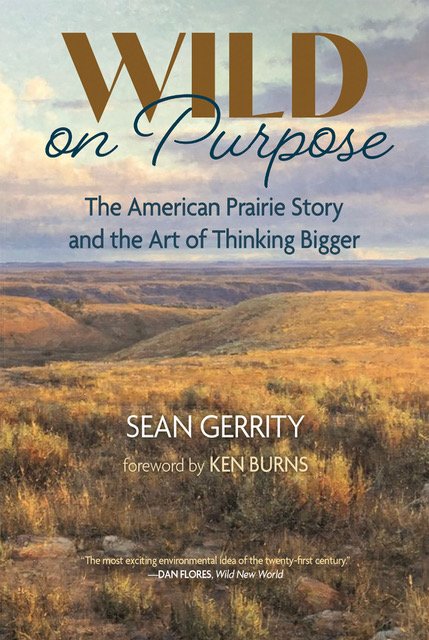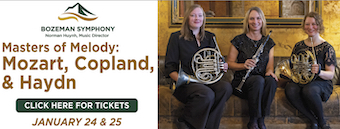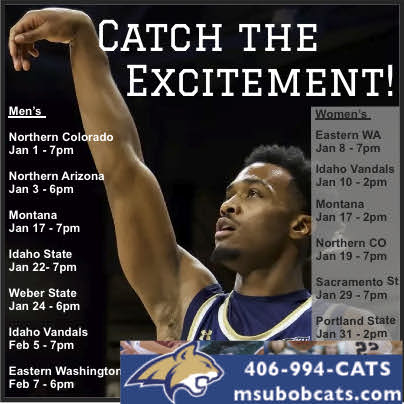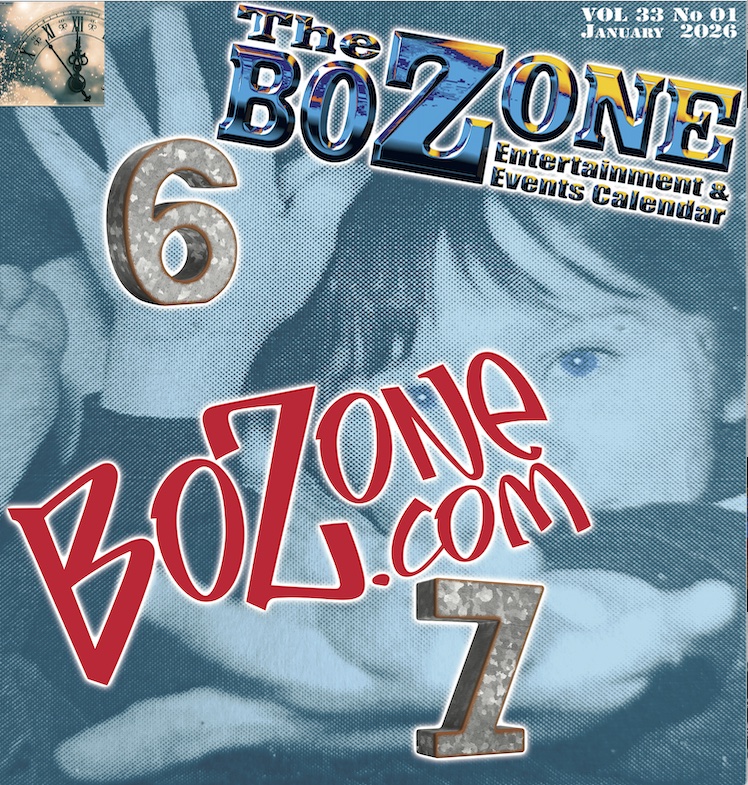Jerry Joseph sounds off ahead of Bozeman show w/ the Jackmormons
Veteran rock n’ roller Jerry Joseph returns to Southwest Montana with his band, the Jackmormons, with a pre-holiday performance at Downtown Bozeman’s Rialto theater on December 14th.
The prolific songwriter has penned hits for Widespread Panic, and over the course of 30 years has released as many albums – as a solo artist, with the Jackmormons, supergroup Stockholm Syndrome, his burning two-piece The Denmark Veseys, or originally, with his beloved ‘80s cult band, Little Women. Joseph is also a relentless live performer, playing over 150 shows a year across the globe. He has toured with Vic Chesnutt, Chris Whitely and Walter Salas-Humara, among others.
In anticipation of the show, the Rolling Zone hopped on the phone with Joseph to talk the inspiration behind the band’s latest release and the cathartic power of music.
RZ: Hey Jerry. You’re in full tour mode but hopefully managed to squeeze in a quick break for the holiday. How’s the road treating you fellas thus far?
JJ: Oh I don’t know, we’ve been kinda all over. We were in the South, then we were in Mexico, now we’re in New Mexico. It’s going all right. Christmas travel time.
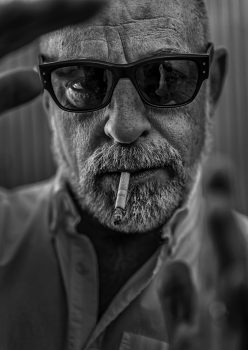
photo by Michael Schoenfeld
RZ: You’ll be in Montana for a handful of shows just ahead of Christmas. For those who have not yet had the opportunity to catch a Jackmormons show, what’ll they be in for at the Rialto?
JJ: Shit man, I don’t know. I’ve been playing in Bozeman since like 1982 or something [laughs]. We’re supporting a couple of records we’ve put out over the past year, year and a half. Bozeman almost feels as much as a home gig for us as anywhere. So, I don’t know what they can expect. Really fuckin’ loud guitars, they can expect that. We played [the Rialto] last year – it’s great.
RZ: You’re on the road following the Record Store Day and recent digital release of Full Metal Burqa, the new album. These songs were inspired by your travels, each based on pretty contrastive experiences. What was your motivation behind this packaging?
JJ: We had released this record called Weird Blood which, in my head, came out at the same time [as Burqa]. The record before Weird Blood was called By the Time Your Rockets Gets to Mars. There were a bunch of outtakes from that. I try to write songs when I’m in places like Afghanistan, or recently Iraq, that are not about the conflict. For Mars, there were a lot of songs I had written while I was in Afghanistan, almost like for my kids, about magic and stuff I don’t usually write about. And with these outtakes that were left, [they] were more observations of my time there, “Peacocks and Blackhawks” and “Chicken Street.” We had this material left over and somebody wanted us to do a Record Store Day thing – that’s how Full Metal Burqa came together. We’re always laughing because the Rolling Stones record Tattoo You, this massive Rolling Stones record, was all outtakes. It’s funny the stuff you have sitting around sometimes.
RZ: “Peacocks and Blackhawks,” to me, felt like an interesting peek into how something as routine as waking up in the morning is so different from culture to culture – and had me realizing how lucky we are here in rural Montana. But this song is more than just a commentary on culture shock, is it not?
JJ: There was a mosque right next to where I was staying in Kabul. The call to prayer is always a little bit after 4 in the morning [and] I think it’s one of the most beautiful sounds in the world, one of the most beautiful human sounds. But in this case, the mosque was like right next door so the speakers were kind of blowing through my window. The song’s about [how] the call to prayer wakes up the peacocks, then the peacocks all start yammering, and then right at that time the Americans take to the sky. It’s an ominous sound, this ‘Here we are!’ They go at very first light, and if you’re just a citizen of the city, it’s a constant reminder that you’re being occupied. I don’t think the average Afghan wakes up and goes, ‘All right, I love the sound of fuckin’ Blackhawk helicopters in the morning.’ And they tend to move out the whole fleet [to] wherever their operations of the day are, not far from the city. Those people, those kids, their entire lives have [had] some version of that sound whether it was the Russians or the war lords or the Taliban, now the Americans. There hasn’t been a moment of peace there in quite a while.
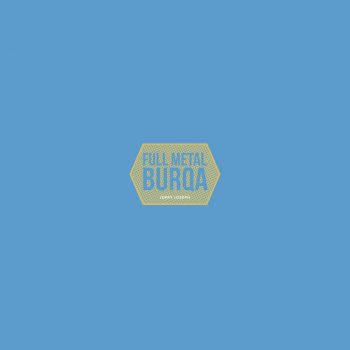 RZ: The title of this latest album obviously inspires a lot of imagery – and is also referenced in the lyrics. Can you share the story behind Full Metal Burqa?
RZ: The title of this latest album obviously inspires a lot of imagery – and is also referenced in the lyrics. Can you share the story behind Full Metal Burqa?
JJ: It’s a line from “Chicken Street.” There’s a million different versions of the hijab, or the burqa, for women around the world. As a Westerner, the one in Afghanistan seems pretty oppressive. It’s got a netting mesh over the eyes and you’re really covered. It’s also beautiful. There are all different colors around Afghanistan, but in Kabul it’s turquoise blue with gold meshing and embroidery. It’s gorgeous but, particularly under the Taliban, was not optional. So, we kept laughing like it was the ‘fuckin’ full metal burqa.’ You go to Turkey or Beirut and women have some super stylish and beautiful versions of the hijab. Americans tend to get on this ‘We can’t believe you have to cover up’ but that’s not what women there think. They’re showing their humility to God and are very proud of it.
RZ: It’s a whole ‘nother world, isn’t it.
JJ: Well it’s the same world, which is the craziest part. The days of ‘it’s a whole ‘nother world’ are quickly in the rearview mirror. We’re at this point right now where people are trying very, very hard to make it seem like it’s another world. But at the end of the day, I’ve never been anywhere where people don’t wake up and say some kind of prayer or have some kind of moment, whether its Westerners and yoga or whatever they do, some sort of spiritual moment, and then they make coffee or tea, then they take a shit, then they wash and shower, and then they hug their children, hug their spouse, and go out the door to do the best they fucking can. I’ve never been anywhere where that’s not true. The commonality is the thing that intrigues me, our common experience.
RZ: You’re a guy who likes to rock n’ roll, but you’re also a songwriter. How do you decide what arrangement will best serve your lyrics? How does that relationship look when you’re creating songs?
JJ: I tend to write them all at one time, in clusters usually. The next record I’m making are all songs that were written in South Africa, or Mexico, or Sonoma County. The musical part depends on the record I’m doing. If it’s a Jackmormons record, at this point in our lives we have kind of a bang – I don’t know what it is but we kind of naturally, ‘Here’s the chords, here’s the chords!’ As a band we’re working with, I think my bass player said 250 songs in our repertoire. That stuff goes pretty organically. I don’t sit alone in a home studio and demo out my stuff. I tend to write something on acoustic guitar. I’ve always done that. I would like to learn how to do things differently, but some things are pretty habit-forming, I suppose.
RZ: The Jackmormons are no strangers to extended jams, and Full Metal Burqa kicks off with one. Is it your intention to let songs sort of fill themselves out as opposed to limiting them to a standard 3 to 4-minute length?
JJ: The 3 to 4-minute length, that’s just about self-editing. It’s not like anybody’s waiting for our next single. It doesn’t make one fuckin’ bit of difference how long my songs are [laughs]. I think in the case of “Power Out,” we’d been working with a couple of different producers and we really wanted to let this one guy do his thing. As long as it’s not boring, I guess that’s the biggest fear about longer songs. You don’t want it to be stupid. Most of the people I really care about as far as artists are pretty heavily into self-editing. [There’s a quote about how] you used to worry about what else to put in – the next bridge, the next line, the next fuckin’ horn part. As you get older, it’s all about what can you take away, what isn’t necessary and how you cut the unnecessary shit out. That’s kind of what I try to write for. Then sometimes you get into the studio and you’re like ‘this is a great fuckin’ groove, let’s just go with this for a while’ and let the producer push all the funny buttons that I don’t know what they do.
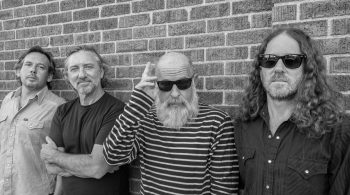
photo by Bill McAlaine
RZ: I hear the Jackmormons are going on a bit of hiatus after this tour.
JJ: The idea is to take some time, kind of regroup. We want to learn how to do what we want to do. We spend an inordinate amount of time touring compared to most of our friends. As far as I’m concerned, this band is the best that I’ve ever heard it. We were thinking it would be good to take a break while we’re, at least artistically, at the top of your game.
RZ: I believe you’ll also be shifting some focus to your nonprofit that brings music to war-torn areas of world.
JJ: I’ve only done a couple in Afghanistan and Iraq, [but] for me it’s been pretty rewarding. It looks like I’m going back to Iraq and maybe the Jordanian-Syrian border in a couple months. There’s a lot of musicians out there that are doing these. The only difference from what I’m doing and anybody else is that I’m actually going to Iraq, going to Afghanistan and handing you the guitar, showing you how to play. Especially for those kids in the refugee camps, there’s a lot of downtime – and there’s a lot of anger. I’m an angry guy a lot of the time and music really helped me at various parts of my life. And it doesn’t have to be music, it could be anything. It could
be watercolors or dancing, I just happen to know how to play the guitar, so I bring guitars for now.
RZ: It’s a great idea.
JJ: It gives people a way to tell a story, everybody’s got one. If you’re telling your story it’s not so pent-up anymore. I think that’s good for people anywhere.
RZ: I’m sure those efforts will lead to some great positivity.
JJ: It might just be one kid. I believe pretty strongly that one kid is worth all that effort.
RZ: Very nice. Well thanks for the time, Jerry. Perhaps a final message?
JJ: We’re excited as always to get back to Bozeman. Every year I do a handful of dates in Montana right before Christmas, and those are usually acoustic. We thought it would be cool for the band to do this one. We’re psyched and look forward to seeing everyone.
Jerry Joseph and the Jackmormons bring their brand of well-traveled rock n’ roll to Bozeman’s Rialto theater on Friday, December 14th. Local group the Salamanders will kick off the music at 8:30pm. Tickets to this 18+ show are $15 in advance at www.rialtobozeman.com. Doors at 7:30pm.
The Salamanders are a four-piece garage country band led by the heavy hand of the baritone guitar and a driving rhythm section. They put on seriously energizing live performances and throw down recordings laced with a creative edge.
Jerry Joseph and the Jackmormons are Joseph (guitar), Steve Drizos (drums), and Steve James Wright (bass). Learn more at www.jerryjoseph.com or find them on Facebook for updated tour details and other announcements. The band’s new Dave Schools-produced album, Full Metal Burqa, as well as Weird Blood and By the Time Your Rockets Gets to Mars, are available now. •

